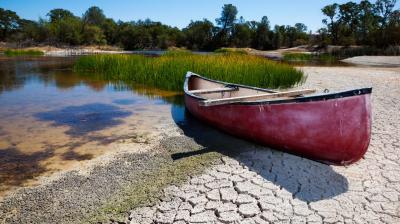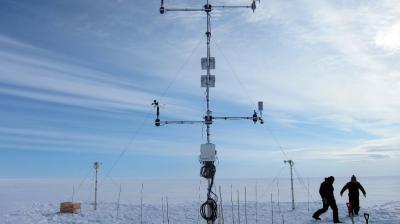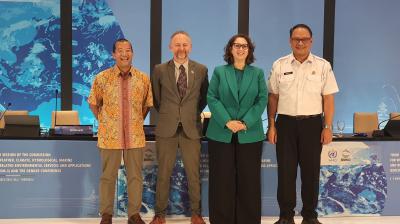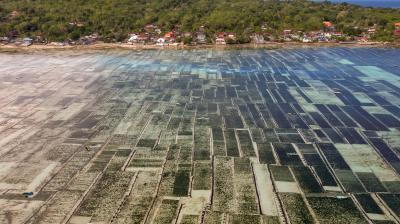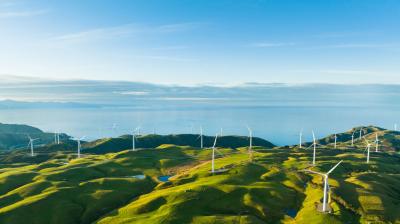WMO at the Climate Conference in Dubai
A top-level delegation from WMO attended COP28 to further the understanding of challenges, solutions and opportunities by addressing five key areas at the joint WMO/IPCC/MERI/NCM Science for Climate Action Pavilion as well as at other venues.
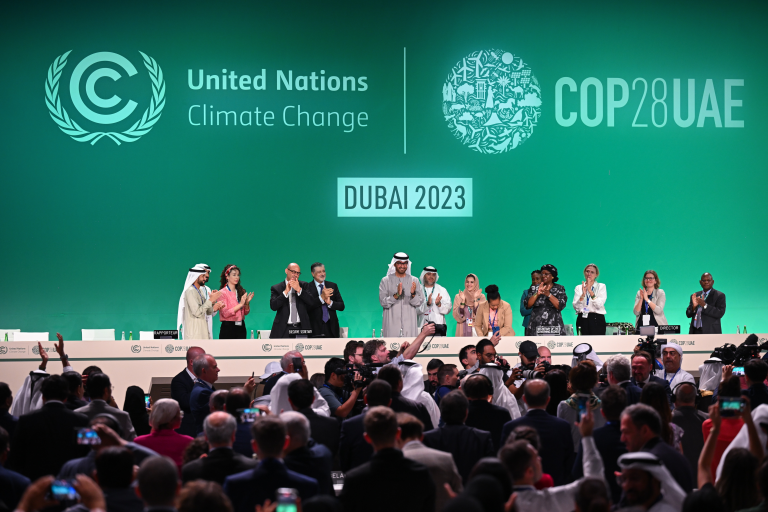
The 28th session of the Conference of Parties (COP28) to the United Nations Framework Convention on Climate Change (UNFCCC), held in Dubai from 30 November to 12 December, concluded with a historic agreement to transition away from fossil fuels, triple renewable energy and increase climate finance for the most vulnerable. The agreement aims to keep alive the goal of the UNFCCC Paris Agreement to try to limit long-term global average near-surface temperature to 1.5 °C above the pre-industrial era. The agreement – whilst less ambitious than many had hoped – calls for more decisive climate action in the face of rapidly accelerating climate change and more dangerous extreme weather that is leading to massive environmental, economic and societal upheaval.
WMO supports the UNFCCC process by providing the latest scientific advice and information to governments, including on the state of the climate and greenhouse gas concentrations. A top-level delegation from WMO attended COP28 to further the understanding of challenges, solutions and opportunities by addressing five key areas at the joint WMO/IPCC/MERI/NCM Science for Climate Action Pavilion as well as at other venues:
- Early Warnings for All by 2027
- Climate science and services for Climate Action
- Global Greenhouse Gas Watch
- Climate Financing
- Water and Climate Interdependencies
The WMO provisional State of the Global Climate report, released on the eve of the first day of COP28, confirmed that 2023 is set to be the warmest year on record. Data until the end of October shows that the year is about 1.40 °C (with a margin of uncertainty of ±0.12 °C ) above the pre-industrial 1850–1900 baseline. The report noted that greenhouse gas levels are continuing to increase: carbon dioxide (CO2) levels are now 50% higher than the pre-industrial era, trapping heat in the atmosphere. Sea surface temperatures and sea level rise have reached record highs while Antarctic sea ice is at a record low. Extreme weather is causing of death and devastation worldwide.
The WMO/United Nations Office for Disaster Risk Reduction (UNDRR) joint report Global Status of Multi-Hazard Early Warning Systems 2023 was released by United Nations Secretary-General António Guterres at a high-level event attended by ministers and stakeholders on 3 December. He highlighted the finding that 101 countries reported having an early warning system (EWS), an increase of six countries compared to last year. He also noted that EWS coverage had doubled since 2015. However, the report revealed that less than half of the Least Developed Countries and only 40% of Small-Island Developing States (SIDSs) have a multi-hazard EWS. Africa had doubled the quality of EWS coverage, however, it still fell below the global average. The risk knowledge that underpins EWSs was found to be particularly low in the Arab States. The Secretary-General called for a doubling of the speed and scale of EWS support in countries in 2024. New funding announcements at the high-level event included 60 million Swedish Krona (5.3 million €) from Sweden and 40 million Danish Krone (5.4 million €) from Denmark and confirmation of an additional 8 million Euros per year in funding from France.
The joint WMO/International Renewable Energy Agency (IRENA) 2022 Year in review: Climate-driven Global Renewable Energy Potential Resources and Energy Demand was launched on the same day. The review highlights the key role of weather and climate information and services in meeting the untapped potential and challenges in the transition to renewable energy. In 2022 alone, 83% of new capacity was renewable, with solar and wind accounting for most additions. Such an increase is key to achieving decarbonized energy systems by 2050, but the report stresses that more decisive actions are needed to speed the exit from fossil fuels. More also needs to be done to increase the climate resilience of renewable energy operations, management, planning and investment.
On 5 December, WMO released the Global Climate 2011–2020: A Decade of Acceleration report, which documents devastating climate change impacts around the world – particularly on food security, displacement and migration – that are hindering national development and progress toward the Sustainable Development Goals (SDGs). It also showed how improvements in forecasts, early warnings and coordinated disaster management and response are making a difference. The number of casualties from extreme events has declined, associated with improved early warning systems, even though economic losses have increased.




